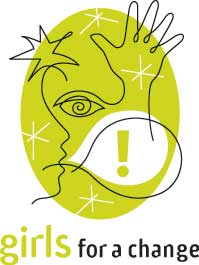- Education Topics
- Achievement Gap
- Alternative Education
- American Education Awards
- Assessment & Evaluation
- Education during COVID-19
- Education Economics
- Education Environment
- Education in the United States during COVID-19
- Education Issues
- Education Policy
- Education Psychology
- Education Scandals and Controversies
- Education Reform
- Education Theory
- Education Worldwide
- Educational Leadership
- Educational Philosophy
- Educational Research
- Educational Technology
- Federal Education Legislation
- Higher Education Worldwide
- Homeless Education
- Homeschooling in the United States
- Migrant Education
- Neglected/Deliquent Students
- Pedagogy
- Sociology of Education
- Special Needs
- National Directories
- After School Programs
- Alternative Schools
- The Arts
- At-Risk Students
- Camps
- Camp Services
- Colleges & Universities
- Counties
- Driving Schools
- Educational Businesses
- Financial Aid
- Higher Education
- International Programs
- Jewish Community Centers
- K-12 Schools
- Language Studies
- Libraries
- Organizations
- Preschools
- Professional Development
- Prom Services
- School Assemblies
- School Districts
- School Field Trips
- School Health
- School Supplies
- School Travel
- School Vendors
- Schools Worldwide
- Special Education
- Special Needs
- Study Abroad
- Teaching Abroad
- Volunteer Programs
- Youth Sports
- For Schools
- Academic Standards
- Assembly Programs
- Blue Ribbon Schools Program
- Educational Accreditation
- Educational Television Channels
- Education in the United States
- History of Education in the United States
- Reading Education in the U.S.
- School Grades
- School Meal Programs
- School Types
- School Uniforms
- Special Education in the United States
- Systems of Formal Education
- U.S. Education Legislation
- For Teachers
- Academic Dishonesty
- Childcare State Licensing Requirements
- Classroom Management
- Education Subjects
- Educational Practices
- Interdisciplinary Teaching
- Job and Interview Tips
- Lesson Plans | Grades
- Professional Development
- State Curriculum Standards
- Substitute Teaching
- Teacher Salary
- Teacher Training Programs
- Teaching Methods
- Training and Certification
- For Students
- Academic Competitions
- Admissions Testing
- At-Risk Students
- Career Planning
- College Admissions
- Drivers License
- Educational Programs
- Educational Television
- High School Dropouts
- Higher Education
- School Health
- Senior Proms
- Sex Education
- Standardized Testing
- Student Financial Aid
- Student Television Stations
- Summer Learning Loss
Girls For A Change

Basic Information
Address: PO Box 1436, San Jose, CA 95109
Phone Number: 4085406432
Email: info@girlsforachange.org
Action Shots
* There are currently no photos associated with this listing.
Additional Information
Causes Served: Youth Development, Social Change, Girls and Women, Community Development, Self Esteem
Background Check: Yes
Population Served: Girls in Middle School and High School
Ages for Volunteer: 18
Hours of Service: 15 hours per month for 3-4 months
Mission Statement:
Girls For A Change is a national organization that empowers girls to create social change. We invite young women to design, lead, fund and implement social change projects that tackle issues girls face in their own neighborhoods. GFC provides the tools, resources, partnerships and support girls need to gain the voice, ability, and problem-solving capacity to realize their full potential. We welcome and serve all girls and focus our efforts on girls who live in low income communities.
GFC was founded in San Jose, California in 2002 and has since doubled the number of girls served. We expanded to the Phoenix Metro Area in 2005 (see Communities). In 2008, GFC took its annual Girl Summit on the road for our National Tour. The tour included teaching more than 2,500 girls about social change and giving them the tools to create change through our Change Your World Trainings. Today, in cities across the country, Girl Action Teams of approximately 10 girls and two women volunteers called GFC Coaches meet during the school year to identify an issue they want to change and then design and implement a social change project.

